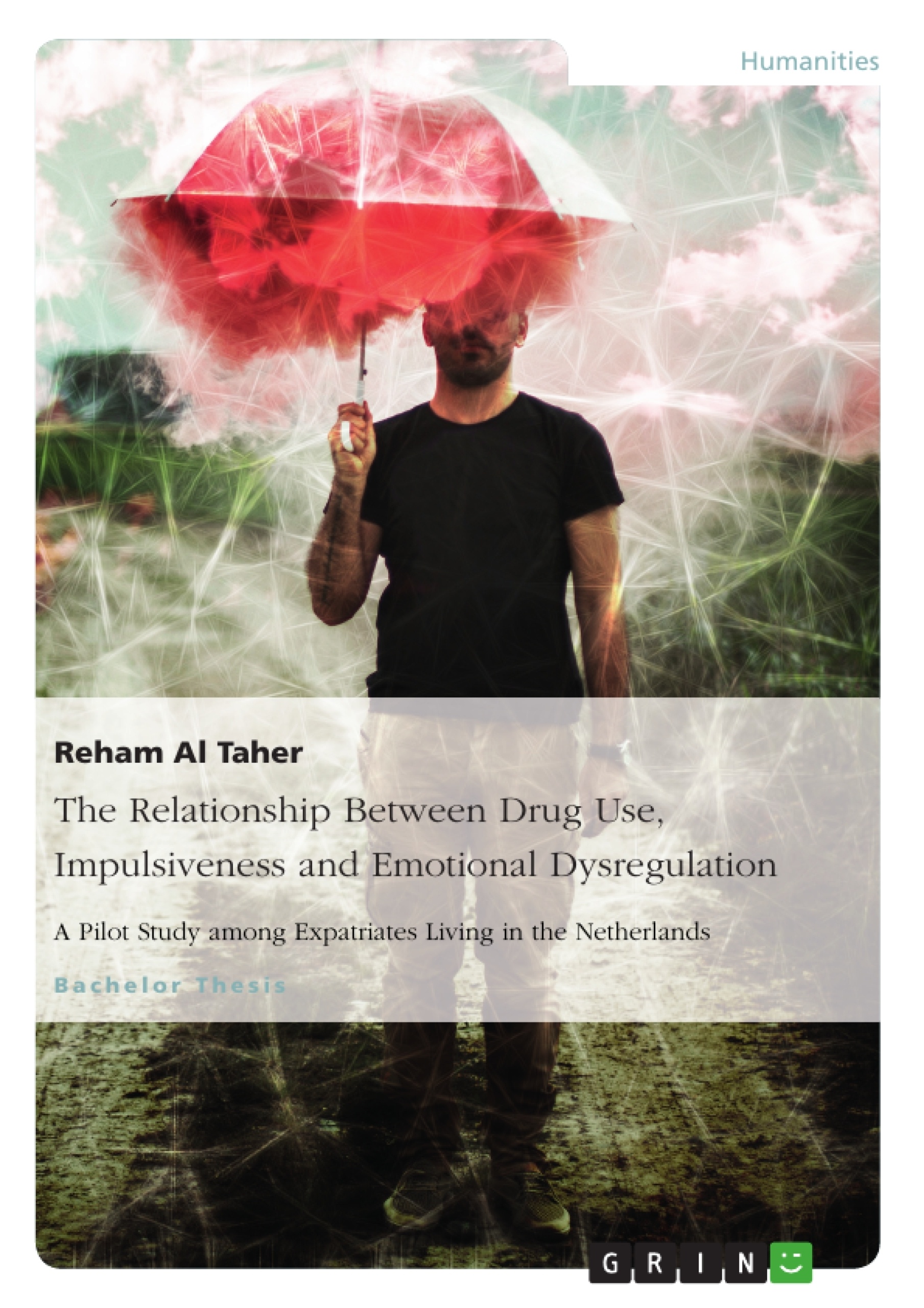Why do some people resort to using drugs in stressful situations and some do not? That is a familiar question researchers and psychologists have been wrestling with for a long time. This pilot study not only highlights the struggles of any individual who has moved to a foreign country but it is also a depiction of the turmoil human beings face when they feel out of place, isolated, and scared. Not everyone is equipped with the inner strength and ability to envision a better future in order to withstand unexpected challenges and focus on long-term goals. While some seem to be able to move through life’s struggles rather effortlessly, there are others who believe it is easier to face challenges with the help of narcotics.
The author Reham Al Taher, a psychology major and aspiring clinical psychologist, was raised most of her life in Egypt and moved to the Netherlands in 2012. In this pilot study she is investigating the potential correlation between drug use, impulsiveness, and emotional dysregulation among expatriates in the Netherlands.
Inhaltsverzeichnis (Table of Contents)
- Introduction
- Literature Review
- Impulsiveness
- Emotional Dysregulation
- The Relationship between Impulsiveness and Emotional Dysregulation
- The Expatriate
- Research Question
- Methodology
- Experimental Design
- Population
- Materials
- Procedure
- Results
- Emotional Dysregulation (Raw scores and graphs in Appendix 5)
- Impulsiveness (Raw scores and graphs in Appendix 6)
- Drug Use (Raw scores and graphs in Appendix 7)
- Pearson's (Appendix 6)
- Discussion
- References
Zielsetzung und Themenschwerpunkte (Objectives and Key Themes)
This thesis aims to explore the relationship between drug use and impulsiveness and emotional dysregulation among expatriates in the Netherlands. The study investigates whether there is a correlation between these factors and how they might influence the experience of expatriation.
- The impact of drug use on the mental health of expatriates.
- The role of impulsivity and emotional dysregulation in drug use and expatriate experiences.
- The relationship between impulsivity, emotional dysregulation, and drug use among expatriates.
- The cultural and social factors that may influence drug use and mental health among expatriates.
Zusammenfassung der Kapitel (Chapter Summaries)
The introduction provides an overview of the research topic and its significance. It discusses the concept of expatriation and the challenges faced by individuals who relocate to foreign countries. The literature review explores the existing research on impulsivity, emotional dysregulation, and their relationship to drug use. It also examines the impact of these factors on the well-being of expatriates. The methodology chapter outlines the research design, population, materials, and procedures used in the study. The results chapter presents the findings of the study, including the relationship between drug use, impulsiveness, and emotional dysregulation among the participants. The discussion chapter interprets the results and discusses their implications for understanding the mental health of expatriates.
Schlüsselwörter (Keywords)
The research focuses on the relationship between drug use, impulsiveness, emotional dysregulation, and expatriate experiences. Key themes include the impact of cultural adjustment on mental health, the role of impulsivity and emotional dysregulation in drug use, and the challenges of adapting to a new environment. The study utilizes empirical research methods to analyze data collected from expatriates living in the Netherlands.
Frequently Asked Questions
What is the focus of Reham Al Taher's study on expatriates?
The study investigates the potential correlation between drug use, impulsiveness, and emotional dysregulation among expatriates living in the Netherlands.
How are impulsiveness and emotional dysregulation related to drug use?
The research explores if individuals who struggle to regulate their emotions or act impulsively are more likely to use narcotics as a coping mechanism for the stress and isolation of moving to a foreign country.
What challenges do expatriates face according to this pilot study?
Expatriates often feel out of place, isolated, and scared. The study highlights the mental turmoil and unexpected challenges that come with relocating to a new culture without adequate inner strength.
What methodology was used in this psychological research?
The study used an experimental design involving a specific population of expatriates in the Netherlands, collecting data on emotional scores, impulsiveness raw scores, and drug use frequency.
Who is the author of this study?
The author is Reham Al Taher, a psychology major and aspiring clinical psychologist who moved from Egypt to the Netherlands in 2012.
- Quote paper
- Reham Al Taher (Author), 2015, The Relationship Between Drug Use, Impulsiveness and Emotional Dysregulation, Munich, GRIN Verlag, https://www.grin.com/document/303552



